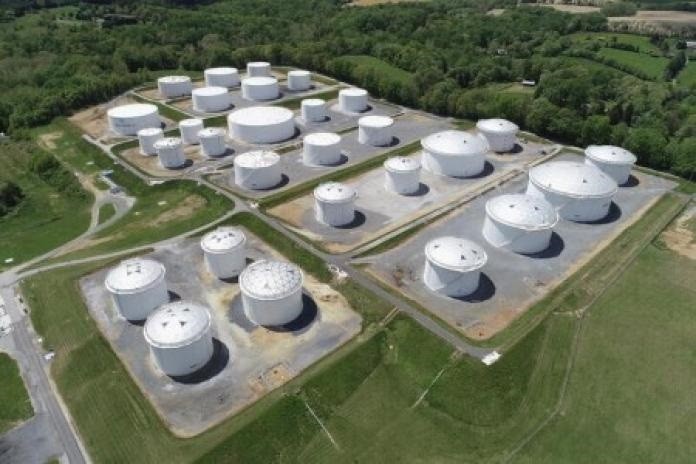Top U.S. fuel pipeline edges toward reopening as gasoline shortages worsen

The top U.S. fuel pipeline, which has been disabled by a cyberattack for six days, sent workers to manually release some stored supplies on Wednesday as fuel shortages across the Southeast worsened and motorists fumed.
A ransomware attack on the Colonial Pipeline last week halted 2.5 million barrels per day of fuel shipments in the most disruptive cyberattack on U.S. energy infrastructure. The pipeline stretches 5,500 miles (8,850 km) from U.S. Gulf Coast oil refineries to consumers in Mid-Atlantic and Southeast states.
Privately owned Colonial Pipeline operator manually opened portions of the line to release needed supplies in Georgia, Maryland, New Jersey and the Carolinas. It has accepted 2 million barrels of fuel to begin a restart that would “substantially” restore operation by week’s end, the company said.
The supply crunch, amid panic buying by motorists, has brought long lines and high prices at gas stations ahead of the Memorial Day holiday weekend at the end of this month, which traditionally marks the start of the peak summer driving season.
Nearly a third of gas stations in metro Atlanta and in Raleigh and Charlotte, North Carolina, were without fuel, tracking firm GasBuddy said. The average price for regular gasoline rose to $2.99 a gallon, the highest since 2014.
LONG LINES
“This place is dead closed,” said Charles Staples, a 31-year-old banker, after circling rows of shut fuel pumps in his Volvo at an Atlanta station. “I heard about the thing, but I just thought they’d be long lines or something.”
In Raleigh, North Carolina, the last few stores with gas were those along major thoroughfares, said Todd Sloan, a general contractor. “Those that have fuel have very long lines,” he said.
Four southeast states – Florida, North Carolina, Virginia and Georgia – joined federal regulators in relaxing driver and fuel restrictions to speed deliveries of supplies. Georgia suspended sales tax on gasoline until Saturday.
The FBI has accused a shadowy criminal gang called DarkSide of the ransomware attack. DarkSide is believed to be based in Russia or Eastern Europe.
Russia’s Embassy in the United States rejected speculation that Moscow was behind the attack. President Joe Biden on Monday said there was no evidence so far that Russia was responsible.
MORE FREQUENT ATTACKS
It is unknown how much money the hackers are seeking, and Colonial has not commented on whether it would pay.
“Cyber attacks on our nation’s infrastructure are growing more sophisticated, frequent and aggressive,” Brandon Wales, acting director of the Cybersecurity and Infrastructure Security Agency (CISA), said at a Senate hearing on Tuesday on the SolarWinds hack that came to light in December and hit companies and government agencies.
Gulf Coast refiners that rely on the Colonial pipeline to move fuel to market have cut processing. Total SE trimmed gasoline production at its Port Arthur, Texas, refinery, and Citgo Petroleum pared back at its Lake Charles, Louisiana, plant.
Citgo said it is moving products from its Lake Charles refinery and “exploring alternate supply methods into other impacted markets.” Marathon Petroleum, another large refiner, said it is “making adjustments” to its operations due to the pipeline shutdown.



